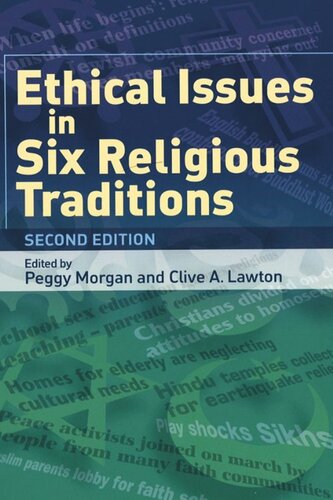

Most ebook files are in PDF format, so you can easily read them using various software such as Foxit Reader or directly on the Google Chrome browser.
Some ebook files are released by publishers in other formats such as .awz, .mobi, .epub, .fb2, etc. You may need to install specific software to read these formats on mobile/PC, such as Calibre.
Please read the tutorial at this link: https://ebookbell.com/faq
We offer FREE conversion to the popular formats you request; however, this may take some time. Therefore, right after payment, please email us, and we will try to provide the service as quickly as possible.
For some exceptional file formats or broken links (if any), please refrain from opening any disputes. Instead, email us first, and we will try to assist within a maximum of 6 hours.
EbookBell Team

4.8
14 reviewsHow do Hindus view euthanasia? Is there a ‘Sikh view’ of advertising? Do Jews and Muslims share the same attitude to marriage? How do Christian and Buddhist views on the environment differ?
This book draws together authors respected in six traditions to explore in parallel the ethical foundations for Hindu, Buddhist, Sikh, Jewish, Christian and Muslim faiths. Each section introduces a different religion and asks specific, topical questions, set in a wider context. The issues addressed are religious identity and authority; the personal and the private; marriage and family; influences on and use of time, money and other personal resources; the quality and value of life; questions of right and wrong; equality and difference; conflict and violence and global issues.
The contributors to this expanded edition are Peggy Morgan, Clive Lawton, Werner Menski, Eleanor Nesbitt, Alan Brown and Azim Nanji.
Additions for this new edition include subsections on reproduction, vegetarianism, just war and terrorism, and genetic modification. The book is structured so that topics can be explored within a specific tradition or comparatively across the traditions.